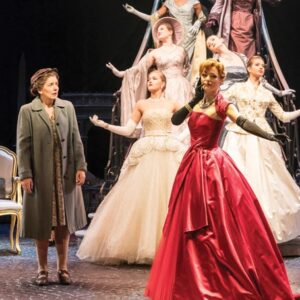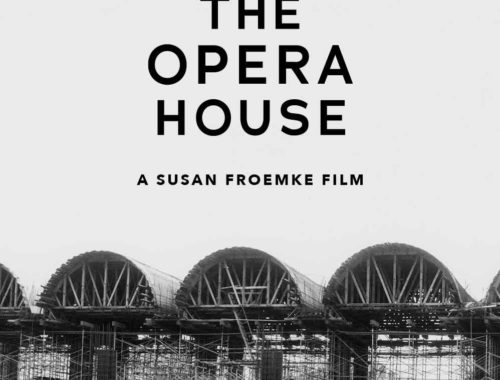GRAMOPHONE: From Where I Sit – February 2021
 When it was first proposed that we might expand the Music Theatre content in Gramophone to include musicals and other less easily definable forms of music drama the question arose as to where they should be placed in the magazine: ‘Opera’ or ‘Vocal’? I opted for ‘Vocal’ for the very simple reason that Opera by its very nature has lofty connotations and I for one wouldn’t want to endorse the already widely held notion that calling something an opera somehow elevates its status.
When it was first proposed that we might expand the Music Theatre content in Gramophone to include musicals and other less easily definable forms of music drama the question arose as to where they should be placed in the magazine: ‘Opera’ or ‘Vocal’? I opted for ‘Vocal’ for the very simple reason that Opera by its very nature has lofty connotations and I for one wouldn’t want to endorse the already widely held notion that calling something an opera somehow elevates its status.
It is still nigh on impossible to define what makes opera opera and musicals musicals. Or indeed any other form or style within the genre. It has nothing to do with being ‘through sung’ or in the ‘book and song’ format. Bizet’s Carmen or Mozart’s Die Zauberflöte, to name but two classic titles, fall into the latter category, but even though Mozart’s Singspiel (or ‘musical’) was expressly commissioned for Emanuel Schikaneder’s popular Freihaus-Theater auf Der Wieden it is still possessed of an operatic nature in the style of singing required. So is it a ‘style’ thing or merely a case of where a piece is performed?
Then again if an opera house chooses to stage Sondheim’s Sweeney Todd or Bernstein’s Candide or West Side Story do they suddenly become ‘operas’ or worse still pieces worthy of the higher accolade. We all know what happened when Bernstein was persuaded that West Side was an opera and should be cast accordingly. Stuff and nonsense.
Regular readers will know how much I admire Jake Heggie’s work in the operatic genre – but no one would deny that his pieces have the sensibility of musicals in their DNA. This month I have reviewed for these pages a gorgeous piece called Flowers for Mrs Harris adapted by the novel by Paul Gallico with music and lyrics by Richard Taylor and a book by Rachel Wagstaff. It is through-sung in the operatic manner though with largely indiscernible ‘numbers’ morphing into a succession of songful elaborations. It is a classic case of how the musical is evolving, how styles of singing can cross-fertilise, how musicals and opera (if we are making the distinction) can bring so much to each other.
There’s no doubt that when ‘Rock Opera’ like Jesus Christ Superstar was introduced by the likes of Andrew Lloyd Webber that this was a conscious attempt to lend the pieces importance and ‘respectability’ and avoid it being branded as offensive. I once asked Lloyd Webber why he had stuck so religiously (if you’ll excuse the pun) to the through-sung format throughout his career and he replied (with exemplary honesty) that he wanted the music to drive the narrative.
I put the same question to Stephen Sondheim whose unshakable allegiance to the ‘Book/Song’ format flies in the face of those who mistakenly claim that Sweeney Todd is through-sung. Through-composed, certainly. His reply – in defence of Book/Song – was that ‘the play’s the thing’. Claude-Michel Schönberg, composer of Les Misérables and Miss Saigon – both through-sung – wryly responded to the same question by insisting that he and his lyricist Alain Boublil were not clever enough to do what Mr Sondheim does!
In the meantime Flowers for Mrs Harris goes into ‘Vocal’ because I’m not ready – or in the least inclined – to label it.

A Night in with NICOLA BENEDETTI
You May Also Like

GRAMOPHONE: From Where I Sit – Awards Issue 2018
10/10/2018
GRAMOPHONE: From Where I Sit – June 2019
14/06/2019
